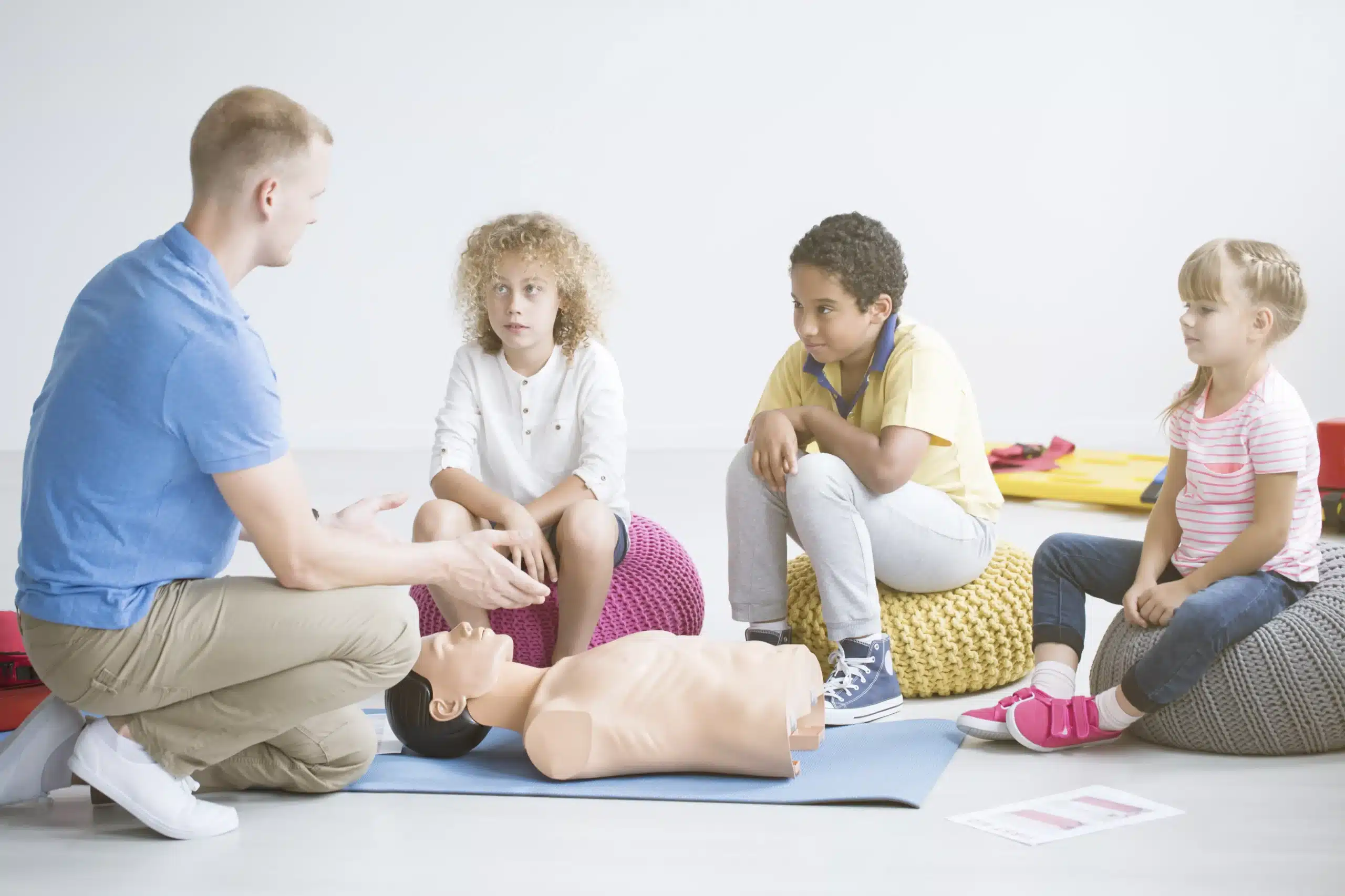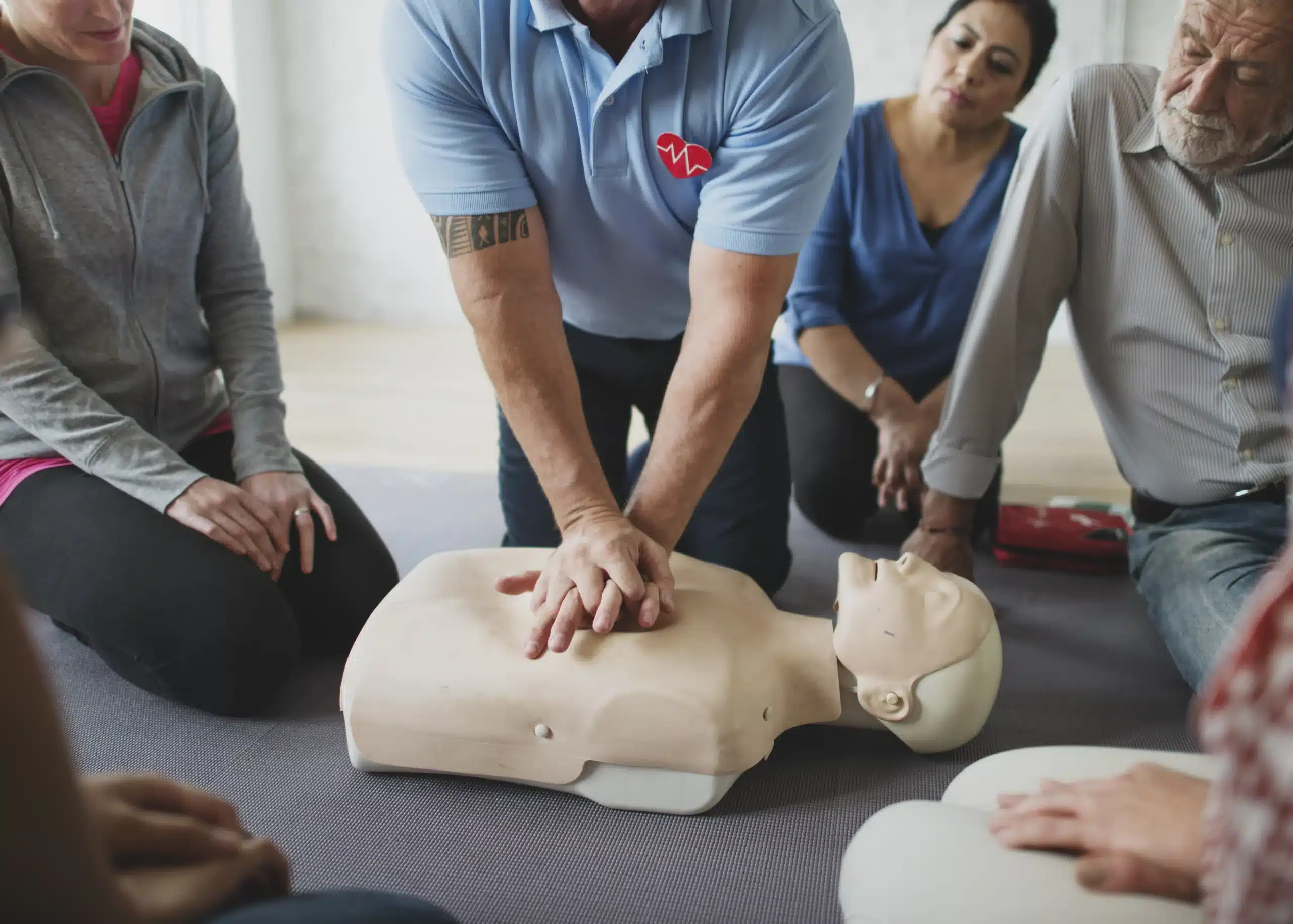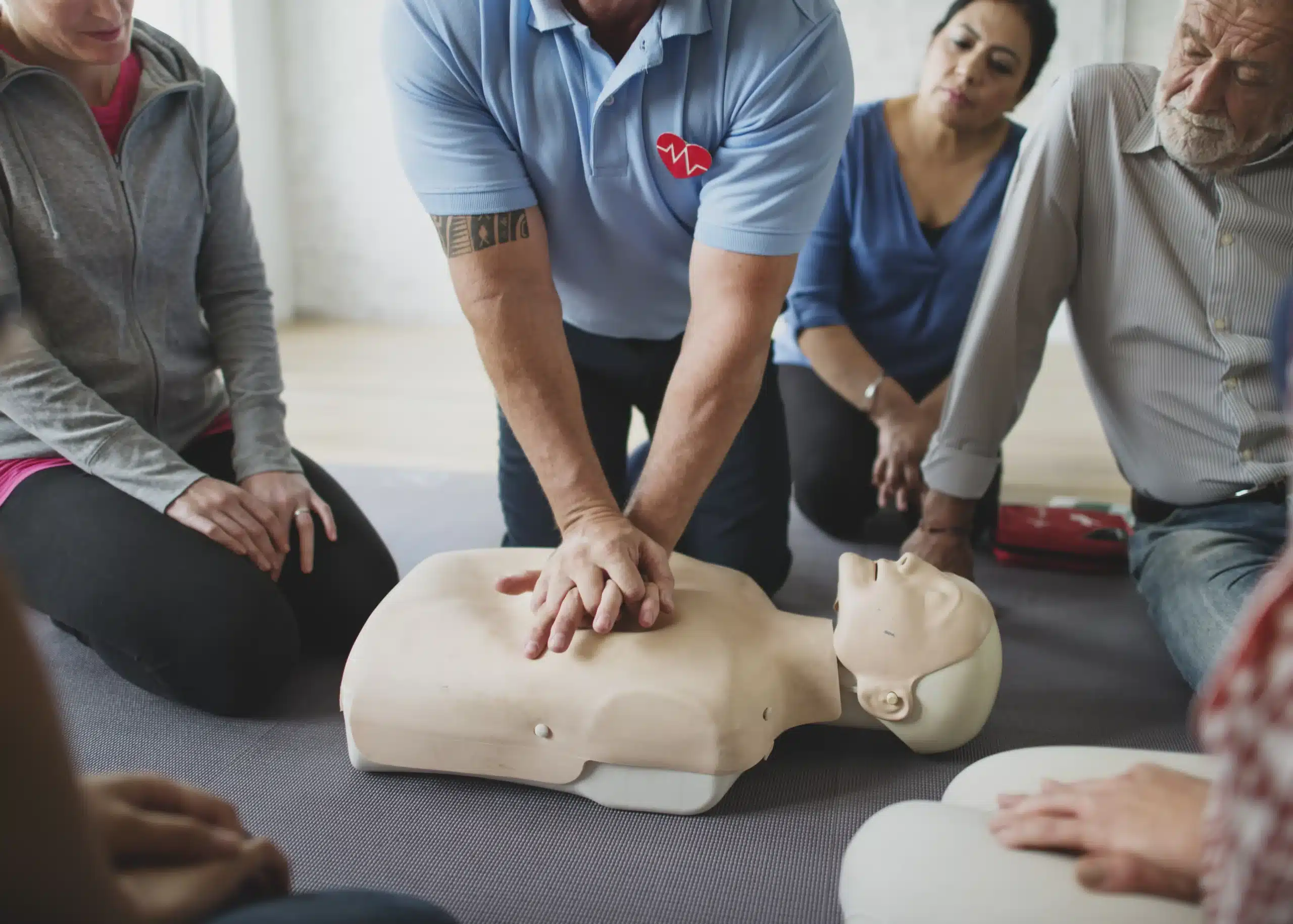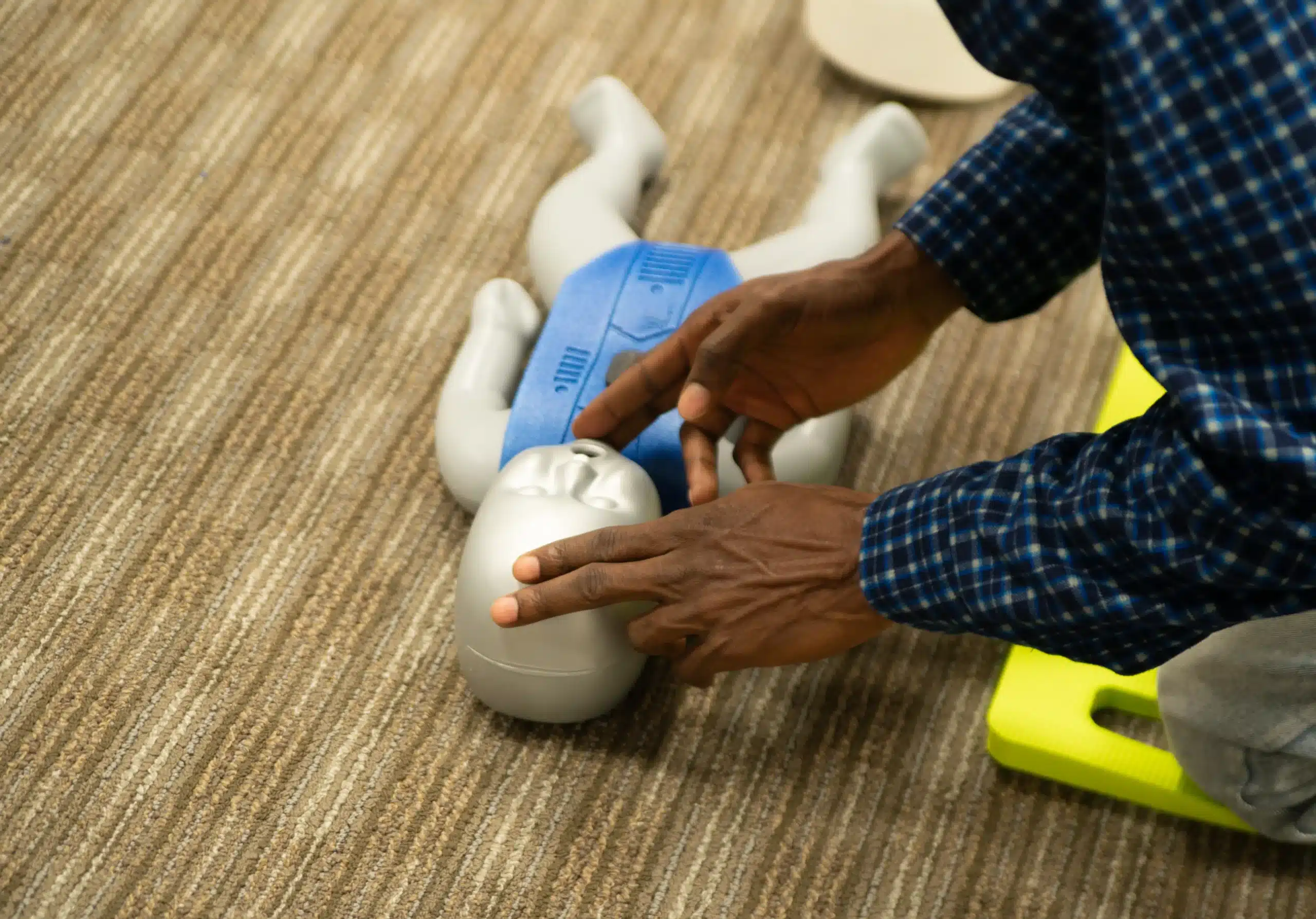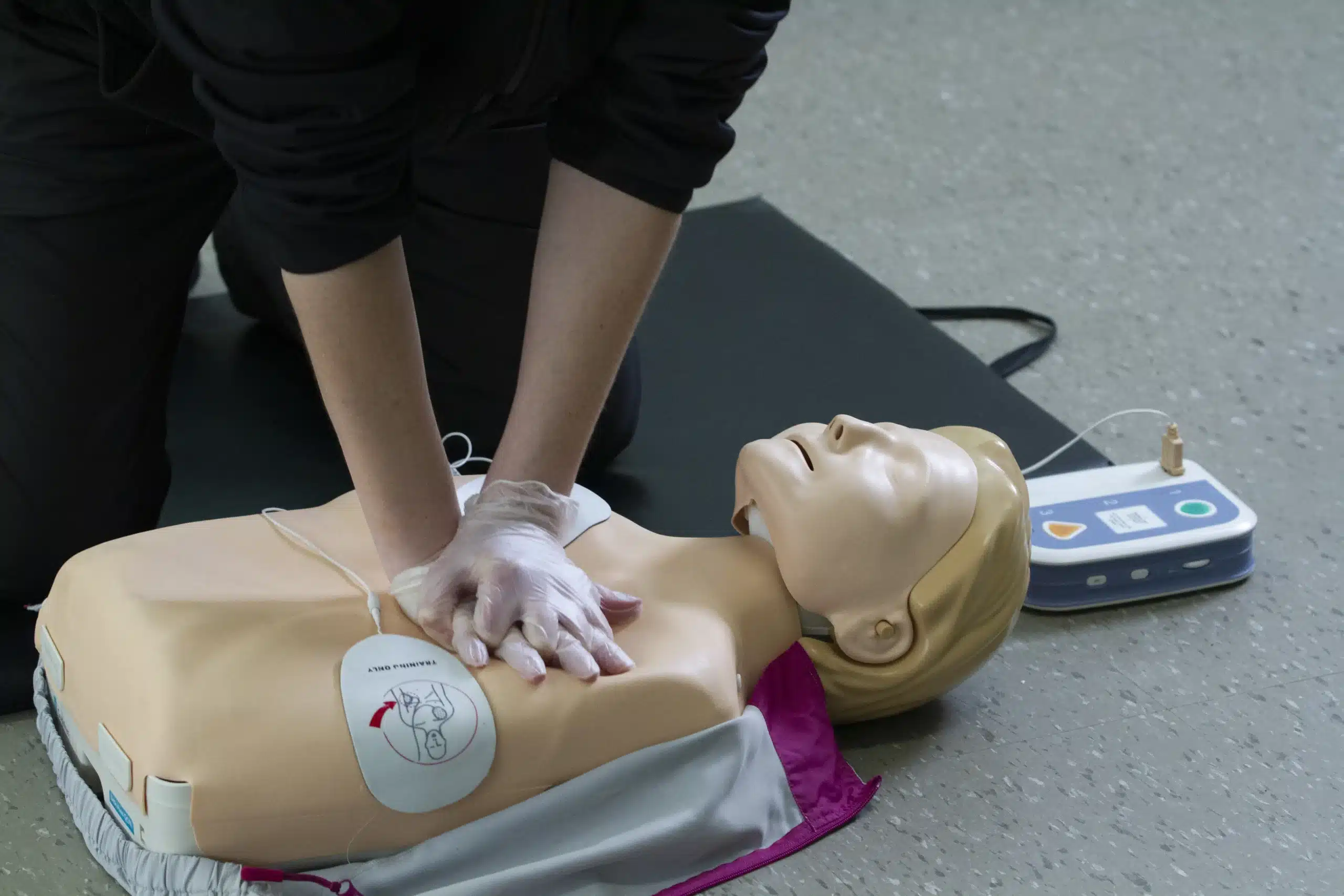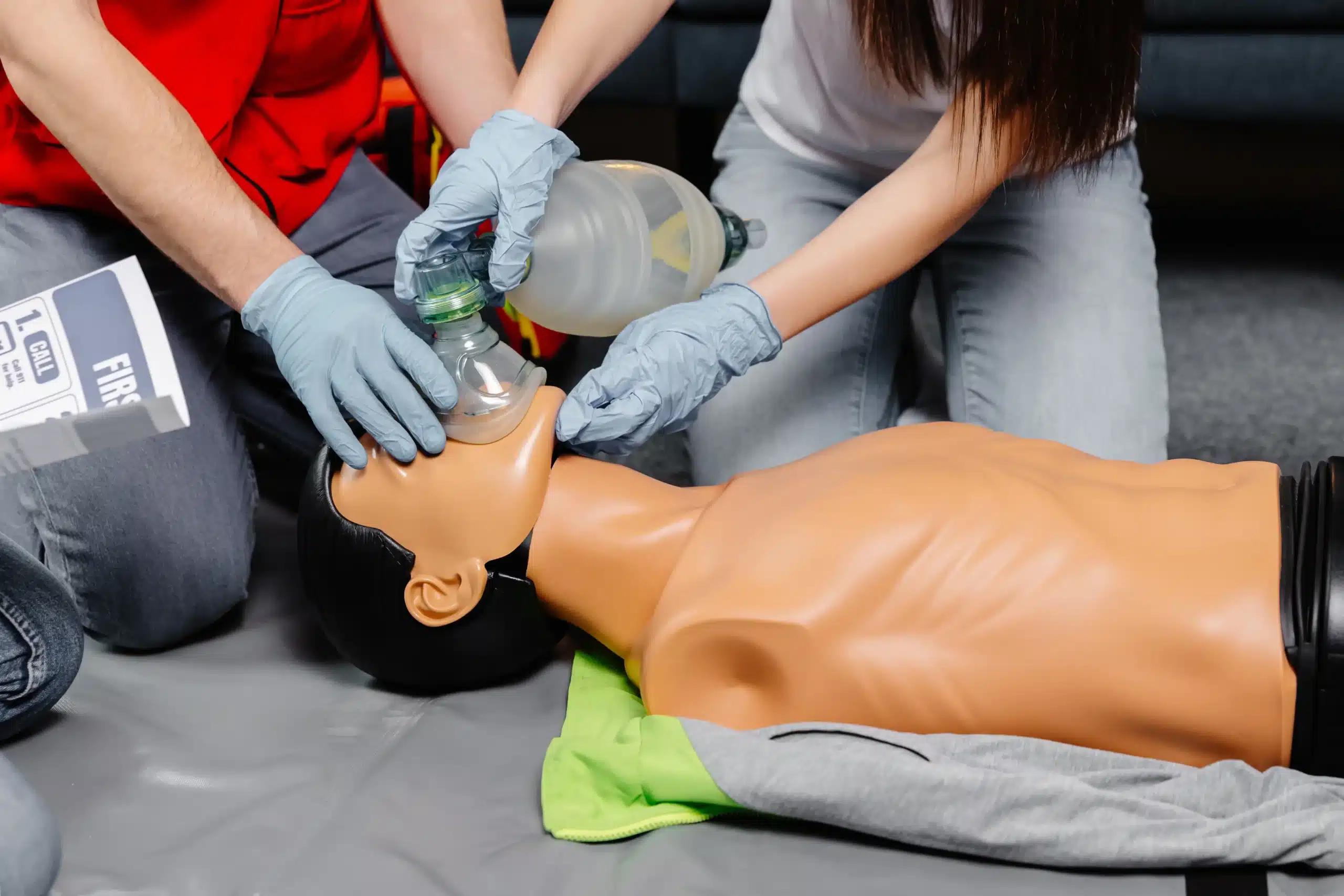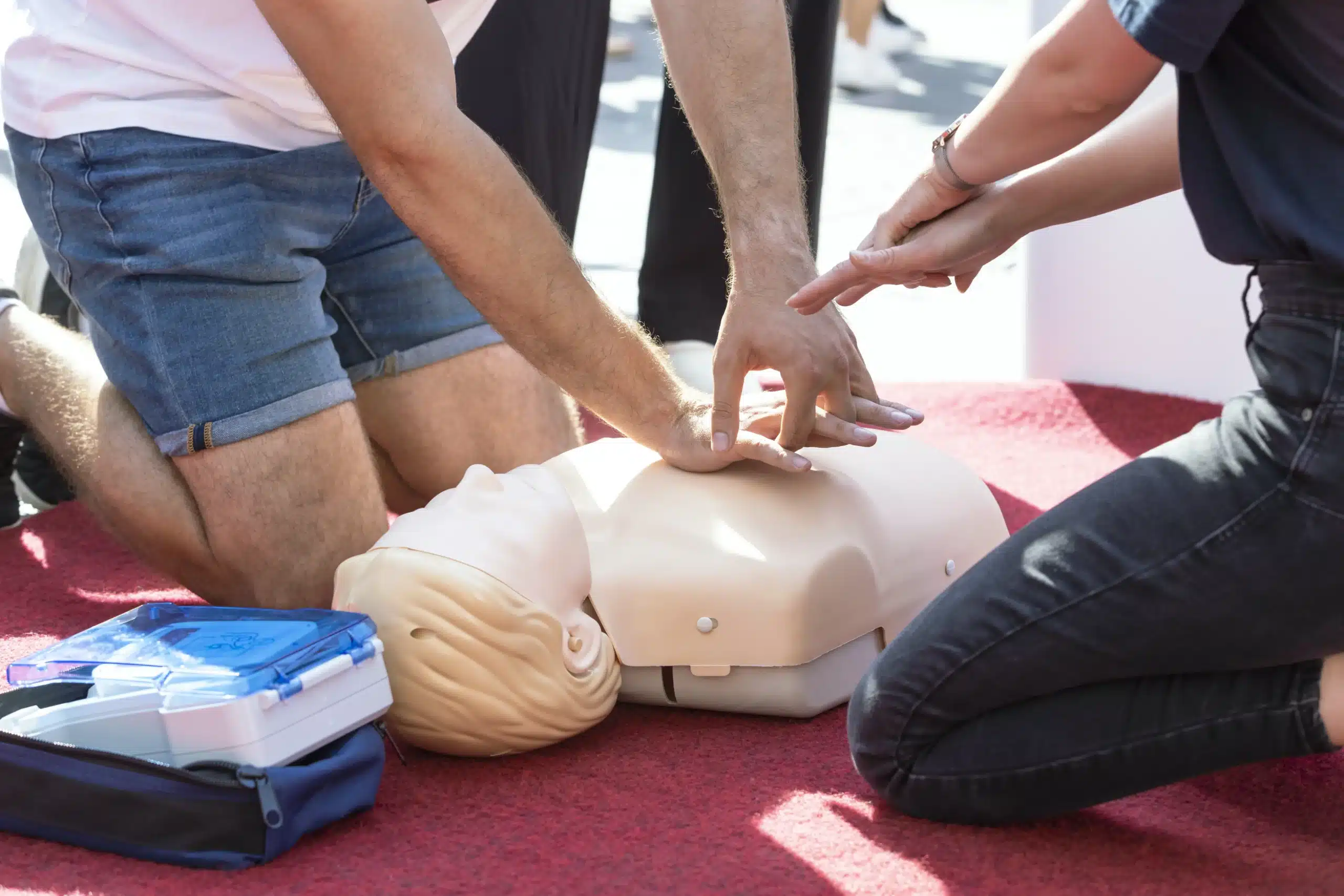For healthcare professionals in Cupertino, PALS certification is a vital tool for providing the best possible care to infants and children. Pediatric Advanced Life Support (PALS) equips providers with the skills and knowledge to manage life-threatening situations effectively. This article explores the ins and outs of PALS, from the curriculum and hands-on practice to the certification process and its impact on Cupertino’s healthcare landscape. We’ll also discuss the various training options available in Cupertino, helping you find the right PALS course to fit your needs. Whether you’re a seasoned healthcare professional or just starting your career, understanding the importance of pediatric advanced life support in Cupertino is crucial for providing optimal care to young patients.
Key Takeaways
- PALS certification equips you with life-saving skills: It goes beyond basic CPR to address the specific needs of infants and children in medical emergencies.
- Find a PALS course that fits your lifestyle: Choose from blended learning, combining online modules and in-person skills sessions, or traditional classroom-based courses.
- Stay current with your PALS certification: Renew your certification every two years and explore continuing education options to maintain your skills and knowledge.
What is Pediatric Advanced Life Support (PALS)?
Pediatric Advanced Life Support (PALS) is specialized training that equips healthcare providers with the skills to manage pediatric emergencies. It goes beyond basic CPR, covering the complexities of respiratory and cardiac emergencies in infants and children. Think of it as advanced training, building on basic life support techniques. We offer PALS certification right here in Campbell.
Key Skills and Knowledge
PALS courses cover critical skills, including managing respiratory distress, cardiac arrest, shock, and other life-threatening conditions. Participants learn to assess a child’s condition, perform advanced airway management, administer medications, and provide post-resuscitation care. The program emphasizes a systematic approach to pediatric assessment and treatment, ensuring providers follow best practices. You’ll gain practical experience through simulations and hands-on training, building confidence to act decisively.
Importance for Healthcare and Childcare Professionals
PALS certification is crucial for professionals working with infants and children, especially in healthcare. This includes pediatricians, nurses, paramedics, EMTs, and respiratory therapists. PALS certification shows a commitment to high-quality care and can improve outcomes in pediatric emergencies. Even for childcare providers, PALS training can be invaluable, providing the skills to respond effectively in critical situations. It’s not just about knowing what to do—it’s about acting quickly and efficiently when a child’s life is at stake. Consider adding PALS certification to your skillset. We offer group discounts for those who want to train together. Contact us today to learn more about our PALS courses.
Top PALS Providers in Cupertino
Finding the right Pediatric Advanced Life Support (PALS) course is crucial for healthcare professionals entrusted with the care of infants and children. Cupertino offers several reputable training centers, each with its own strengths. Let’s take a closer look at some of the top providers:
Campbell CPR Classes
Campbell CPR Classes offers convenient PALS certification courses designed to fit your schedule. As a woman-owned American Heart Association Training Center, they are committed to excellent customer service and competitive pricing. Students receive an official American Heart Association PALS provider card, valid for two years, upon completing the course. Their Campbell location makes them easily accessible to those living or working in Cupertino. Check their low price guarantee to ensure you’re getting the best value.
American Heart Association Training Centers
The American Heart Association (AHA) sets the standard for PALS training. Look for official AHA Training Centers, like Campbell CPR Classes, to ensure you receive high-quality instruction aligned with the latest guidelines. PALS certification is essential for healthcare providers, including pediatricians, emergency physicians, nurses, paramedics, and respiratory therapists, who manage pediatric emergencies. AHA PALS courses equip professionals with the knowledge and skills to provide critical care during life-threatening situations.
In-Home CPR
For a more flexible training option, consider In-Home CPR. They offer various first aid and CPR certification classes in Cupertino, including some AHA-certified courses. While their website doesn’t specifically list PALS, contact them to inquire about availability, as their offerings can change. Their instructors, comprised of EMTs, RNs, and paramedics, can provide training at your home or business, a convenient choice for busy professionals.
Red Cross
The Red Cross also offers PALS certification, emphasizing its scientific basis and educational value. They highlight the incorporation of the latest research and teaching methods, making their PALS certification a valuable credential. While the Red Cross is a well-known provider, compare their curriculum and course format with AHA-certified options to ensure it aligns with your specific needs and professional requirements.
PALS Certification: Costs & Options
Understanding the costs associated with PALS certification and the various options available can help you plan your training effectively. Whether you’re a first-time PALS student or looking to recertify, several paths suit different budgets and schedules.
Initial Certification Fees
Initial PALS certification involves both online learning and a hands-on skills session. At Campbell CPR Classes, the comprehensive PALS certification is priced at $290, covering both the online course and the in-person skills evaluation. This bundled approach streamlines the process, ensuring you receive all the necessary training to become PALS certified. Other providers may structure their pricing differently, so comparing options is always wise. Be sure to confirm what’s included in the quoted price to avoid surprises.
Recertification Costs
For current PALS certification holders, recertification is essential to maintain your skills and credentials. The RQI program offered by the American Heart Association provides a convenient and efficient way to recertify in BLS, ACLS, and PALS. This program allows healthcare professionals to refresh their knowledge and skills through online modules and shorter, more focused in-person sessions. RQI is a popular choice for its flexibility and streamlined approach, making it easier to stay current with the latest resuscitation guidelines.
Group Discounts & Special Offers
If you’re coordinating PALS training for a group, such as your workplace or colleagues, explore potential discounts. Campbell CPR Classes offers discounted group rates for various courses, including PALS. This can significantly reduce the overall cost, making training multiple people more affordable. Also, keep an eye out for special offers or promotions that training centers may run. Flexible scheduling options are also available to accommodate busy professionals and groups. Contact Campbell CPR Classes to discuss your group’s specific requirements and explore the best options. They offer courses seven days a week to accommodate various schedules.
PALS Course: Prerequisites & Requirements
Before you sign up for a Pediatric Advanced Life Support (PALS) course, it’s helpful to understand the prerequisites. Knowing the requirements ahead of time lets you focus on finding the right course for your schedule and learning style.
BLS Certification
A current Basic Life Support (BLS) certification is a must-have before taking PALS. This foundational knowledge ensures you can effectively respond to basic life-saving situations. You can find information on BLS certification courses offered by Campbell CPR Classes. A solid understanding of BLS principles is essential for building upon the advanced skills taught in PALS.
Healthcare Experience Recommendations
PALS certification is designed for healthcare providers who regularly work with children. This includes professionals like pediatricians, nurses, paramedics, and emergency medical technicians. While not always mandatory, relevant healthcare experience is strongly recommended. This experience helps you grasp the complexities of pediatric emergencies and apply the PALS training effectively. For more information, explore the PALS courses available at Campbell CPR Classes.
Required Materials & Preparation
Most PALS courses require a current PALS Provider Manual, available as an eBook or paperback. Often, the eBook is available for purchase directly from the training center when you register. Additionally, many courses now incorporate mandatory pre-course work, such as online modules, videos, and self-assessments. Make sure you complete these requirements and obtain any necessary completion certificates before your in-person training begins. Contact Campbell CPR Classes for specifics on required materials and pre-course preparation.
PALS Course Formats & Duration
Choosing the right PALS course format depends on your learning style and schedule. Let’s break down the common options: blended learning and traditional in-person training. We’ll also cover what to expect regarding the time commitment for each.
Blended Learning
Blended learning combines online coursework with in-person skills testing. This approach offers flexibility. You work through the online PALS material at your own pace, fitting it around your other commitments. It’s perfect if you prefer self-directed learning and need a schedule that works for you. Because the online portion covers the core PALS content, the in-person session focuses on hands-on practice and skills assessment.
In-Person Training
Traditional in-person PALS training takes place in a classroom setting with an instructor. This format provides a structured learning environment with direct interaction with the instructor and other healthcare providers. PALS certification is designed for professionals involved in pediatric patient care, including pediatricians, emergency physicians, nurses, paramedics, and respiratory therapists. The in-person format allows for immediate feedback and answers any questions you might have.
Course Length & Time Commitment
The time commitment for PALS certification varies depending on the format. Blended learning typically involves 3–4 hours for the online portion, followed by a 30–40 minute in-person skills test at one of our testing sites. In-person training usually takes a full day, allowing for comprehensive instruction, hands-on practice, and assessment. Consider your availability and preferred learning style when deciding which format is best for you.
What to Expect in a PALS Course
Preparing for a Pediatric Advanced Life Support (PALS) course? Here’s a glimpse into what awaits you, from the curriculum and hands-on practice to the certification process.
Curriculum Overview
PALS is designed to equip healthcare providers with the skills to manage pediatric emergencies. The curriculum covers critical topics, including respiratory emergencies, cardiac arrest, shock, and post-resuscitation care. It emphasizes a systematic approach to assessment, treatment, and stabilization of critically ill infants and children. This training is crucial for professionals like pediatricians, emergency physicians, nurses, paramedics, and respiratory therapists who may encounter pediatric emergencies. For a deeper dive into the importance of PALS training, check out this helpful article on Pediatric Advanced Life Support.
Hands-On Practice
Online PALS courses offer flexibility and self-paced learning. However, mastering these skills requires hands-on practice. After completing the online modules, you’ll participate in a hands-on skills session to apply your knowledge in a simulated environment, practicing essential techniques like CPR, intubation, and medication administration. For more information on online PALS options, take a look at this guide.
Assessment & Certification
After completing the online portion and the hands-on skills session, you’ll undergo an assessment to evaluate your proficiency. Successful completion earns you an American Heart Association (AHA) PALS Provider certification, valid for two years. This certification demonstrates your competence in providing advanced life support to pediatric patients. Remember, maintaining your certification requires staying current with the latest guidelines and best practices.
Choose the Right PALS Provider in Cupertino
Finding the right Pediatric Advanced Life Support (PALS) provider is crucial for receiving high-quality training and gaining the confidence to handle pediatric emergencies. With several options available in Cupertino, it’s essential to consider key factors before making your decision.
Factors to Consider
Think about what matters most to you in a learning environment. Do you prefer the flexibility of online learning, or do you thrive in a traditional in-person classroom setting? Many providers offer blended learning options, combining online modules with hands-on skill sessions. Consider your schedule and learning style when evaluating course formats.
The provider’s reputation and accreditation are also key. Look for providers accredited by reputable organizations like the American Heart Association (AHA). For example, Campbell CPR Classes is a woman-owned AHA Training Center known for its commitment to excellent customer service and affordable pricing. Reading online reviews can also give you valuable insights into past students’ experiences.
Finally, consider the comprehensiveness of the training. Does the course cover all the essential PALS topics and provide ample opportunities for hands-on practice? Mastering these skills is critical for effectively responding to pediatric emergencies, so ensure the provider offers realistic scenarios and simulations.
Questions to Ask
Don’t hesitate to contact potential providers directly and ask specific questions. Inquire about the instructors’ qualifications and experience. A highly experienced instructor can make a significant difference in your learning experience. Ask about the course content, structure, and whether they offer hands-on skills testing and simulation. Understanding the certification process is also important.
It’s also worth asking about post-certification support. Do they offer refresher courses or access to updated materials? This can help you maintain your skills and stay current with the latest guidelines. Finally, inquire about any available discounts, such as group rates or special offers for healthcare organizations. Choosing the right PALS provider involves careful consideration of these factors and asking the right questions to ensure you receive the best possible training.
Maintain Your PALS Certification
Keeping your PALS skills sharp is crucial for providing the best possible care. This section covers how to maintain your certification and stay up-to-date with the latest pediatric life support practices.
Renewal Requirements
PALS certification is valid for two years. To maintain your credentials, you’ll need to complete a renewal course before your current certification expires. This ensures you’re always prepared to respond effectively in pediatric emergencies. Check with your certifying organization, such as the American Heart Association or the Red Cross, for specific renewal requirements and available courses. Staying current with your certification demonstrates your commitment to providing high-quality care.
Continuing Education
Beyond renewing your certification, ongoing learning is essential in healthcare. Staying informed about the latest guidelines and best practices will help you deliver the best possible care. Consider attending workshops, taking online courses, or participating in refresher training sessions to expand your knowledge and refine your skills. Resources like Rescue One offer valuable training opportunities for healthcare providers seeking continuing education in pediatric emergency care. This continuous learning helps you adapt to advancements in the field and maintain your expertise.
RQI Certification Maintenance
The American Heart Association’s RQI (Resuscitation Quality Improvement) program provides a convenient and effective way to maintain your PALS certification. This program uses regular skills assessments and online learning modules to reinforce essential concepts and techniques. RQI helps you stay proficient in your PALS skills and ensures you’re always ready to respond confidently in critical situations. It’s a valuable tool for healthcare professionals committed to providing the best possible care for pediatric patients. This ongoing maintenance ensures you can consistently apply your skills effectively.
PALS Training’s Impact on Cupertino Healthcare
PALS certification is much more than a credential—it’s a vital investment in the health and safety of Cupertino’s children. Equipping healthcare professionals with advanced life-saving skills strengthens the community’s emergency response capabilities and contributes to a more resilient healthcare system.
Enhanced Emergency Preparedness
PALS training plays a crucial role in preparing Cupertino’s healthcare providers for pediatric emergencies. These certification classes cover a wide range of critical skills, from recognizing early signs of deterioration to managing respiratory and cardiac emergencies. This comprehensive approach ensures healthcare teams can respond swiftly and effectively to any pediatric crisis, minimizing the impact on young patients. In a community like Cupertino, where access to high-quality healthcare is paramount, PALS-trained professionals contribute significantly to a higher standard of emergency preparedness.
Improved Patient Outcomes
The direct link between PALS training and improved patient outcomes is well-established. Healthcare providers who complete PALS training gain the latest evidence-based techniques and best practices for pediatric advanced life support. This knowledge translates to better decision-making in critical moments, leading to more positive outcomes for young patients. PALS certification contributes to a safer and more effective healthcare environment for Cupertino’s children by ensuring healthcare professionals stay up-to-date on the most effective interventions.
Build Confidence in Healthcare Providers
Beyond technical skills, PALS training instills confidence in healthcare providers. Knowing they can handle complex pediatric emergencies empowers them to act decisively and efficiently under pressure. This confidence is essential for effective teamwork and communication during critical situations, further enhancing the quality of care provided to young patients in Cupertino. PALS certification equips healthcare professionals with the necessary skills and empowers them to deliver confident, life-saving care when it matters most.
Related Articles
- Online PALS Classes in Cupertino: Your Guide – Campbell CPR Classes
- AHA PALS Classes in Campbell, CA – Campbell CPR Classes
- HeartCode PALS San Jose: Your Certification Guide – Campbell CPR Classes
- BLS Certification in Cupertino: A Complete Guide
- Online PALS Classes in San Jose: Your Guide – Campbell CPR Classes
Frequently Asked Questions
Why is PALS certification important for healthcare providers? PALS certification equips healthcare professionals with the advanced skills needed to respond effectively to pediatric emergencies. It goes beyond basic life support, delving into the complexities of respiratory and cardiac emergencies specific to infants and children. This specialized training can significantly improve the outcomes for young patients in critical situations.
What are the different PALS course formats available? PALS courses are typically offered in two formats: blended learning and traditional in-person training. Blended learning combines online coursework with a shorter in-person skills session, offering flexibility for busy schedules. In-person training provides a structured classroom environment with direct interaction with the instructor and other participants. Both formats cover the same core content and lead to the same certification.
How much does PALS certification cost, and are there any discounts available? The cost of PALS certification varies depending on the provider and course format. It’s always a good idea to compare pricing and check for any available discounts. Some providers, like Campbell CPR Classes, offer discounted group rates, which can be a great option for workplaces or groups of colleagues training together. Don’t hesitate to contact providers directly to discuss pricing and explore potential cost savings.
What are the prerequisites for taking a PALS course? Before enrolling in a PALS course, you’ll need a current BLS (Basic Life Support) certification. This foundational knowledge is essential for building upon the advanced skills taught in PALS. While specific healthcare experience isn’t always mandatory, it’s highly recommended, as PALS is designed for professionals who regularly work with children in a healthcare setting.
How can I maintain my PALS certification once I’ve completed the course? PALS certification is typically valid for two years. To maintain your credentials, you’ll need to complete a recertification course before your current certification expires. The American Heart Association’s RQI (Resuscitation Quality Improvement) program offers a convenient and efficient way to recertify and stay up-to-date with the latest guidelines and best practices in pediatric advanced life support. Continuing education through workshops and refresher courses is also a valuable way to keep your skills sharp and ensure you’re always prepared to provide the best possible care.


